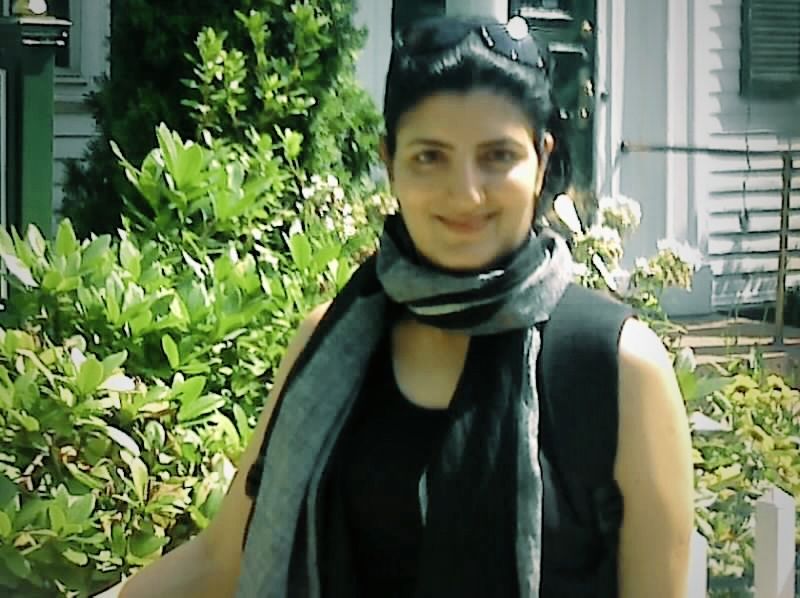I recently had the pleasure of interviewing New Delhi-based researcher, activist and journalist Amrita Nandy about her paper, “Outliers of Motherhood,” and her upcoming book on this subject. Here is the Q&A:
Q&A with Amrita Nandy
What inspired you to research and author the paper, “Outliers of Motherhood”?
The paper, “Outliers of Motherhood” is a sliver from my larger doctoral research that studies Indian women who re-imagine womanhood vis-à-vis motherhood and mothering in diverse ways and to different degrees.
I was inspired to research on the subject (of women who are ambivalent about motherhood and those who reject it) because it presents a different way of imagining women, women’s bodies and female citizenship. Their ideas are counter current to the cultural imperative of reproduction, motherhood and care. The silence around the issue of the childfree and those who are ambivalent was also interesting to observe. I wanted these voices be heard and brought out in the public domain for us to listen to and engage with. It is only when we hear them do we know that they are not always rejecting motherhood, but at times the values and structures that make motherhood problematic for some women.
What was the methodology, and what did you find on the childfree in India?
For this qualitative study, I followed the feminist research methodology that allowed me to see my participants and their life worlds subjectively. It is based on the idea that any exercise of knowledge production is partial, contingent and situated.
Regarding the childfree, I found that they have varying reasons. Many women are engaged with causes such as human rights or are environmental crusaders. Others look at birth through the frame of ethics and morality. Many women believe it would be difficult to manage motherhood with their full-time jobs. And many of them love children and are performing child and/or elderly care in their other roles as aunts, neighbours and so on. Almost all the childfree women are well-educated professionals. Most of them have shared their decision to be childfree only within a close circle of friends and/or family. Many of them have faced some negative judgement, if not stigma, or feared facing it if they were to publicly declare their childfree decision.
Tell us about your upcoming book on the subject.
The book tells the stories of women choosing alternatives to motherhood and its conventions. It studies the subjectivities and agency of many kinds of maternal outliers: the childfree as well as a range of mothers who in some ways resist the many norms associated with motherhood (such as married women who voluntarily adopt by side-stepping procreation, the queer mother, the sex worker mother and so on).
Given that in pronatalist cultures, public discourse is suffused with the maternal, I highlight the standpoint of these outliers to give them voice. The study theorises the extent and limit of procreative choice and rights in the lives of women, if at all. It tries to unravel how women act in socio-cultural climates that emphasise adherence to norms of womanhood. I ask if these women’s decisions are critical dissent or an imaginative, alternative lifestyle that aligns with neo-liberal values.
I argue that these women perform a critical social function by revealing much about the symbolic and actual place of women, motherhood, care giving, biological determinism, the State and its role in our understanding of human kinship and the family.
What do you foresee as future trends about the choice to have no children in India?
I cannot foresee trends but it can be said that women in the cities whose experiential horizons are wider due to greater exposure to a range of ideas are starting to think deeply about their lives and goals. Work cultures demand long hours away from home but the family expects women to be home on time to perform care. This conflict also influences women to re-thinking motherhood. Yet, the cultural mandate of motherhood remains strong. Currently, the Hindu far-right that is in power in India also publicly urges Hindu women to reproduce many children and invokes the rhetoric of the motherland.
Thank you, Amrita!
Dr. Amrita Nandy is a New Delhi-based researcher, activist, freelance journalist and part-time baker. Over the last decade, her work has involved the complexities of gender and women’s rights. Her press articles have appeared in a range of Indian and international English dailies and magazines.
Currently, Amrita is working on the manuscript of a book on women’s choice vis-à-vis motherhood. The book is based on her doctoral research among voluntary non-mothers and a diverse set of unconventional mothers (unwed, sex worker etc.). It argues for possibilities of re-imagining motherhood and human relatedness. The research won Amrita the “Fox International Fellowship” (2013-2014) by Yale University, USA.
Update: Amrita’s book is now available!
Besides published papers in international academic books and journals (including on the evolution of family regulation on domestic violence in India), Amrita has conducted independent research. She also founded Echo, an informal group that raised awareness and sensitivity towards social issues through public campaigns against sex selective abortion and sexual harassment. Amrita has a Ph.D from Jawaharlal Nehru University, a Master’s from the University of Oxford, U.K.

